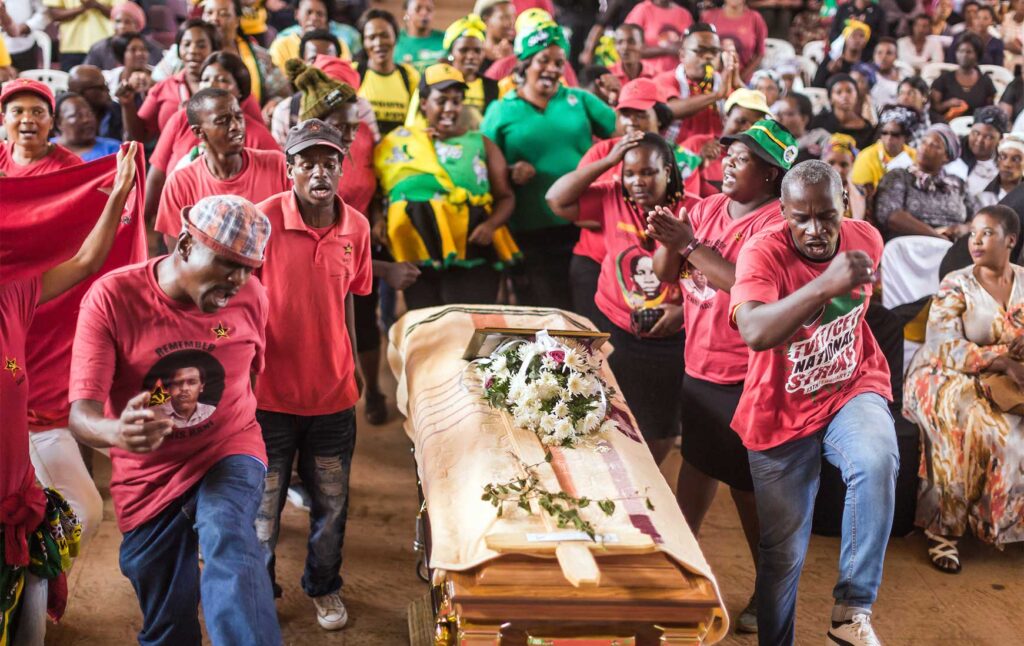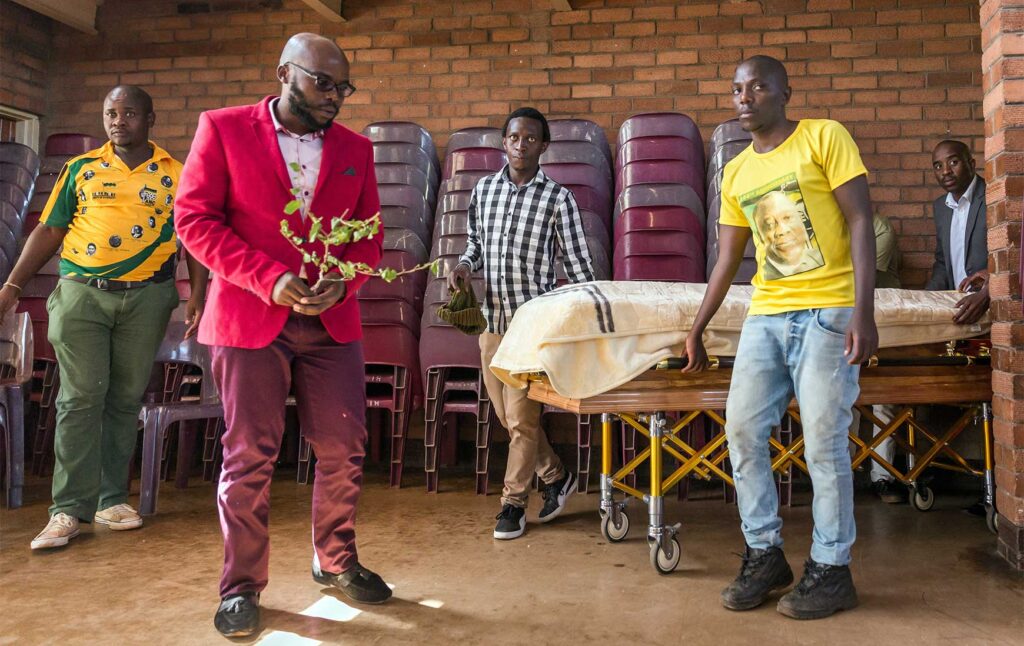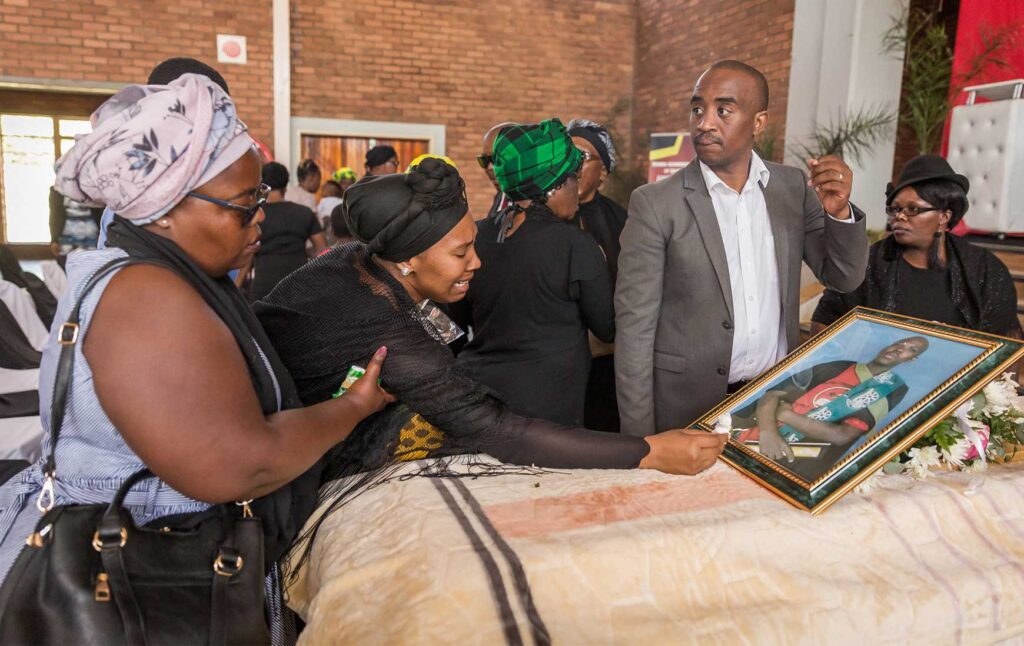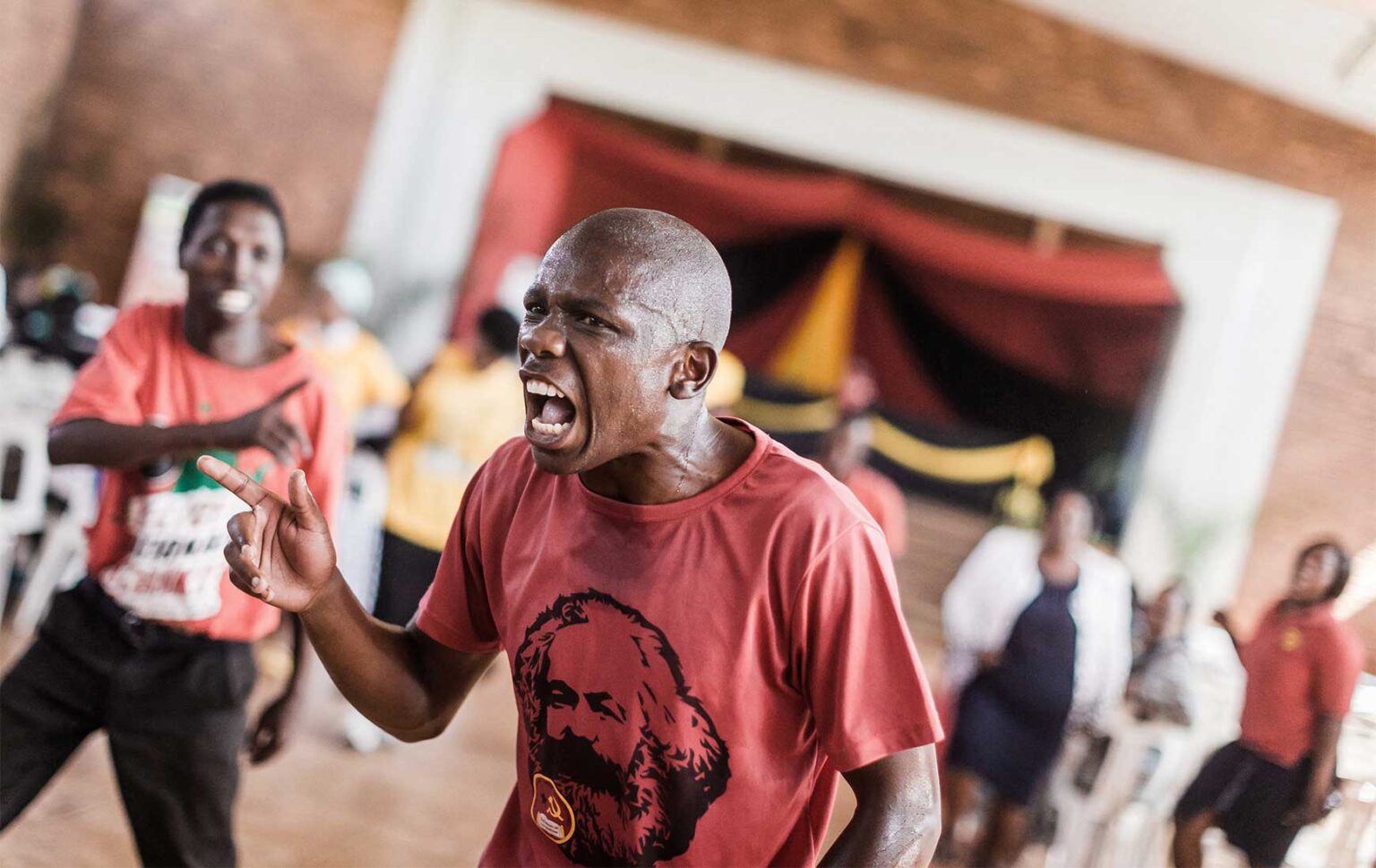Local politics in South Africa is dogged by political assassinations
The man on the phone was obviously scared. He was uptight and wired. I had tracked him down through friends who encouraged him to speak to me, but when he did, it was with a reluctance that seemed like paranoia at first. And then I heard his story.
“Please. I don’t want any comeback. Things are already so bad,” he said. The man’s wife had begged him not to stand as an ANC councillor candidate in the local government elections of 2021. A spate of killings linked to ANC infighting where they lived in rural KwaZulu-Natal meant a committed democrat had shrunk back from public office, putting his life and his family first.
“These people are extremely evil,” he said. “They are heartless; they do not act for the people. The municipality is like a taxi rank. Most councillors have taxis, and for them to get hitmen is easy. There is a very dangerous relationship between the taxi industry and politicians.”
The story was ghastly. It involved nine people killed and 17 injured, much of the violence linked to an ANC councillor. It is the sort of story I heard with sickening repetition while researching my book War Party (published by Tafelberg in 2020) about political assassinations.

Since then, I have worked with the Global Initiative Against Transnational Organized Crime (GI-TOC) researching the gangs, drugs, and mafias that dominate the underworld. GI-TOC’s data shows 141 assassinations in South Africa in 2022, an average of more than two a week. In KwaZulu-Natal, the province where I live, 21 local councillors have been murdered in the past year alone.
Why, you ask? Well, the short answer is that most of the victims are members of the ANC, killed in power struggles over patronage. But there is also a longer, more nuanced answer, about how politics and organised crime are increasingly enmeshed in an environment where violence has become institutionalised. ANC cadre deployment allows state capture and corruption hobbles government service delivery. The criminal justice system is under strain and organised crime rises on the back of a weak state.
The upshot is that in this terrifying environment, killers flourish.
Those are the drivers and dynamics behind the assassination of local councillors, but again, that’s the story in broad brush strokes. The bigger picture is a detailed one that involves a host of issues, including the availability of guns and hitmen for hire. The story weaves in and out of the taxi industry, inter-party contestation (versus intra-party battles), gangs and drugs, traditional leadership, the private security industry, entrepreneurs, and so-called construction mafias. All of these rely on the ready supply of hitmen, or izinkabi, contract killers who assassinate for payment of a few thousand rands or hundreds of thousands of rands.
Against this backdrop, it is difficult to give a definitive account of the problem of political violence. There is no single cause and its tentacles intertwine, so much so that talk about political violence becomes amorphous. It’s down to hired killers, but, as the minister of police, Bheki Cele, once told me in an interview, catching the masterminds often means muddling through the minions first to find out the motive for the assassination.
The history of political violence in South Africa is well documented. The apartheid state, often acting in concert with the Inkatha Freedom Party (IFP) against the United Democratic Front (UDF), fostered an ideologically driven civil war. Democracy ended that, but vestiges of the conflict remained, and many of the victims mimicked the violence of their oppressors and, in some instances, outdid them.

Wars create strongmen and “violence entrepreneurs”, who rule with fear and blood. These didn’t disappear in 1994, but were absorbed into politics, either by hijacking political parties, or worse, embraced by elites anxious to access the power they commanded. Today, many of the strongmen are from the taxi industry, a lucrative cash business where firepower determines route dominance.
A frightening figure in this landscape was Sputla Mpungose, a Zululand taxi boss who left Inkatha and was embraced by the ANC.
Mpungose, a menacing figure with a long history of involvement in violence: political, personal, and business, died of Covid. He rose through the ranks of Inkatha and reportedly led hostel attacks in Johannesburg on communities sympathetic to the ANC.
In 2004, when he switched to the ANC, he was accused of leading a hit squad in the Inkatha heartland of Nongoma. He was arrested the same year for raping a 14-year-old girl. A year later she, her mother and cousin were killed before they could testify against him. The state accused Mpungose of executing them when the family refused an offer of 10 cows to drop the charges. At the time, he was out on bail for allegedly killing a rival taxi boss. He was convicted on the rape charge, sentenced in 2007 but in 2011 he was released on appeal.
Mpungose made headlines again in 2015 when a top cop alleged he had put a R1.2 million price tag on his head. When I wrote War Party, sources claimed he had the ear of government ministers and often attended ANC conferences. He was also defended by a high-profile ANC attorney. Sputla’s men, I was told, had a hand in assassinations in the Newcastle area, where internal rivalry has claimed the lives of many ANC members.
He was by no means an exception; across South Africa heavies of his ilk hold sway. Researching drugs and gangs for GI-TOC, multiple sources spoke about how private security businesses (some owned by taxi bosses) provided cover for gangsters, giving them firearms and manpower. The same names crop up repeatedly: hoods linked to politicians and crooked police.
The police are not altogether powerless to act against gangsters. In fact, they did so in September this year in a bloody shootout with Nkululeko Mkhize, a high-rolling entrepreneur who terrorised communities around Richards Bay on the Kwa-Zulu-Natal north coast. He and an accomplice, former police officer Sabelo Cele, were killed when police stormed his home at Zimbali, a luxury gated estate in Ballito.

The incident followed the shooting of five people in Richards Bay the previous day, leading police to the Zimbali residence. Mkhize was a notorious extortionist, taxi and tow-truck boss in Richards Bay and part of a powerful taxi family. At his funeral, his brother Mathula made an extraordinary apology to people terrorised by his brother. People tend to listen when Mathula speaks. A former regional chairman of the South African National Taxi Council, he has been spotted on social media posts at ANC events and travels with a crew of bodyguards. He is also a co-accused in the corruption trial involving former eThekwini mayor Zandile Gumede. He is a voice in the construction sector, as project liaison committee leader on a huge government infrastructure project, multi-billion rand highway upgrades in the province.
Construction mafia and business forums are the new bywords for violence, which has led to President Cyril Ramaphosa calling in the army to help deal with the issue. But while many South African companies feel under siege by extortionist, violent, construction mafia and business forums, they may not be the primary target of the villains.
Local councillors are often in the crosshairs. In September 2022, for example, ANC councillor Mnqobi Molefe was shot dead while in hiding. His family and friends say he was killed because rival business mafias were vying to control part of the spend on the R6 billion Umgeni Water project in the area, although as is often the case, the motive is difficult to establish. In May last year, in Durban, opposition parties welcomed the removal of Ward 101 councillor Mzi Ngiba who reportedly earned close to R1 million while languishing in jail awaiting trial for the murder of his comrade, ANC ward candidate Siyabonga Mkhize.
In June last year, meanwhile, pastor John Myaka, an African Christian Democratic Party councillor in Richards Bay, was gunned down while delivering a sermon. Then in July, in Nongoma, a National Freedom Party (NFP) councillor, Ntombenhle Mchunu, was shot dead, her comrades claiming that IFP members were responsible. The NFP had recently walked away from a coalition arrangement with the IFP.
In 2016, the government responded to the growing violence in KZN by appointing a commission of inquiry headed by Advocate MTK Moerane, although his report was largely ignored. He said killings were on the rise because state tenders were being manipulated and exploited by politicians willing to kill for money; like greedy taxi bosses, they moved to eliminate opposition. With low barriers to entry, competition for the job of councillor was fierce, as its salary meant an instant meal ticket and provided access to state patronage. Corruption was the backbone of South African politics, Moerane said. “And that’s the cause of violence.”
University of KwaZulu-Natal political analyst Dr Imraan Buccus agrees. He says the state is the quickest facilitator of social mobility in South Africa, and with a job as a councillor, he sees the difference between life on the margins and access to the finer things in life. “People will kill to have it,” he says.
In developing societies, the underworld has a big stake in local government and asserts this when state institutions are weak. The impact of this in South Africa is profound. Gareth Newham from the Institute for Security Studies recently cited this startling figure: between 2012 and 2022, the ability of the police to solve murder dockets dropped by 55% despite its budget growing by 86% in the same period. This meant that only 14,5% of murder dockets were solved last year.
Having said that, the police have made some inroads. In September, police minister Cele said a dedicated task team investigating political killings in KZN since 2018 had investigated 321 dockets. He said there were 63 more dockets compared to when he had given an update 18 months earlier. The 321 total included 155 cases of murder, 51 of attempted murder, 77 of intimidation, 12 cases of conspiracy to commit murder, and 26 other ad hoc cases. This led to the arrest of 348 suspects, of whom 62 had been convicted. Cele said investigations showed the parties most affected by political violence were the ANC, IFP and NFP. Of the 52 councillors murdered since 2011, 31 were ANC, 14 were IFP and four were NFP. “While 52 councillors have been gunned down since 2011 to date, alarmingly, 103 officials working within municipalities as political office bearers and officials in political offices were also killed,” Cele said.
In this scenario, South Africans are robbed of people of conscience because increasingly, only desperados and crooks are prepared to become councillors. This entrenches corruption, while the playbook of violence and intimidation creates a climate of fear.
Veteran violence monitor Mary de Haas says this has a direct bearing on the calibre of people prepared to be involved in politics. “Violence and intimidation affect the psyche of people; they are terrified,” she says. “It is layer upon layer of violence that involves thugs, mafia, drug dealers, corrupt politicians, and taxi hitmen. The police response is often shambolic or worse, some police are working with criminal syndicates. Might is right and the bullies hold sway.”

Greg Ardé is an award-winning journalist based in South Africa. He has written five books including War Partypublished by Tafelberg (June 2020), which examined political killings, mostly in the ruling ANC. Greg has worked with AmaBhungane, Daily Maverick, Mail & Guardian and News24 on a range of stories. He has also contributed to several reports produced by the Global Initiative Against Transnational Organised Crime, including copper theft, political killings, taxi violence, gangs, drugs, and business mafias.



